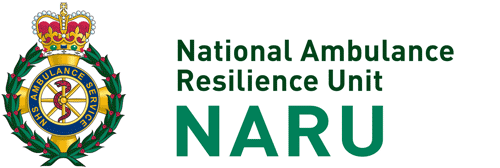The NHS England contract to deliver the National Ambulance Resilience Unit (NARU) service has again been awarded to West Midlands Ambulance Service University NHS Foundation Trust following a competitive tender process.
West Midlands has operated the contract successfully on behalf of NHS England’s Emergency Preparedness, Resilience and Response (EPRR) department since the inception of NARU in 2011 and will now deliver the service for a further three years, with an option to extend for a further two.
Anthony Marsh, Chief Executive of West Midlands Ambulance Service and the NHS ambulance service’s national Chief Executive Lead for EPRR said:
Dealing with high-risk emergencies like terror attacks and COVID-19 requires the highest standards of specialist care to form the backbone of the ambulance service response during these significant national challenges.
This is why I am extremely proud that the professional way in which West Midlands Ambulance Service has led NARU since 2011 has been recognised by NHS England which has once again awarded the tender for the management of NARU to us. We will now continue the excellent work of the past nine years and continue to play a key part in UK national ambulance resilience.
NARU National Director Keith Prior, said:
We are pleased to have won this competitive tender and to have retained the contract to deliver the important work of NARU. While a lot of hard work went into our successful bid from our team at WMAS, I am also particularly keen to recognise the ongoing dedication and commitment of the staff who make up the NARU team both at our world class training and education facility and at our administrative HQ in Ryton.
They help train and equip hundreds of specialist ambulance staff each year who go on to provide life-saving care to thousands of patients in the most challenging circumstances. Combined with our Quality & Improvement team, they help ensure that NARU provides a vital resilience role across the whole NHS ambulance service.

Comprised of a group of highly experienced ambulance service professionals, NARU exists to train and equip specialist operational staff from each NHS ambulance trust (for example Hazardous Area Response Teams), so that they have the best equipment and knowledge to deploy into high-risk and complex emergency situations with the confidence and ability to save lives, while mitigating the risks to their own wellbeing.
The Department of Health and Social Care (DHSC) requires the NHS ambulance service to provide certain specialist functions and capabilities to contribute to the overall resilience of the UK.
These ‘interoperable capabilities’ are mandated by NHS England through their contracts with individual ambulance services, so another fundamental part of the NARU remit is to provide assurance by coordinating and maintaining these capabilities at the national level.
